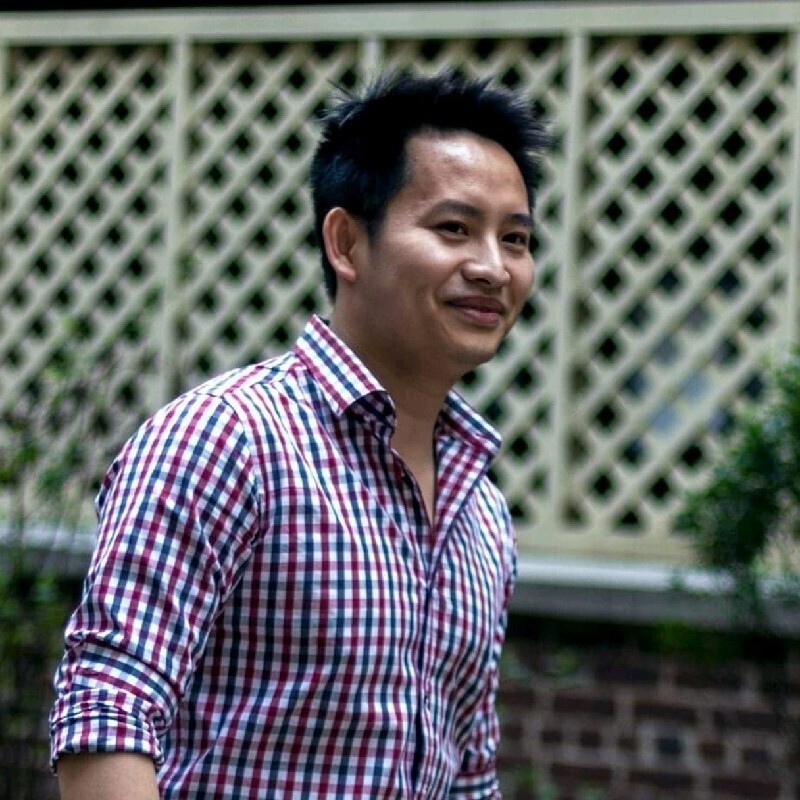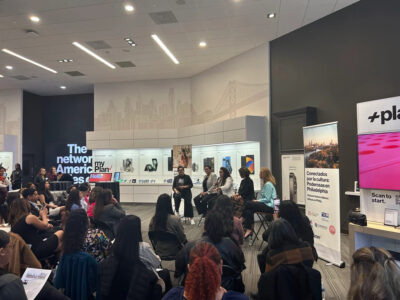Violence against Asian Americans has been on the rise in the past year, a harrowing trends in full view last week when six Asian women and two others were killed when a gunman opened fire at two spas in the Atlanta area.
The violence has compelled people to use the hashtag #StopAsianHate on social media. It has also confounded and frustrated Asian Americans throughout America and worldwide about why they continue to be targeted.
Graphic design company Penji‘s cofounder and CEO, Khai Tran, has been contemplating why violence against people of Asian descent has been happening on a global scale. For him, Asian Americans are often encouraged to be peaceful instead of fighting back against racists and people trying to do them harm.
Growing up as Vietnamese American, Tran frequently remembers being told if he remained quiet when people said racist things to him, that he would stop hearing them and that their racism would go away. It didn’t and only wore on him even more.
Tran has been disappointed by the lack of a response from the Philadelphia community against anti-Asian sentiments. Without diminishing the vitriol against Black people that led to last summer’s Black Lives Matter protests following the killing of George Floyd, he hoped that Asian Americans would receive similar support, but he hasn’t seen it yet.
“I am most disappointed in the Philly community that I’ve always supported,” he said. “When the BLM protests occurred, we all showed up together. But now that Asians are literally being attacked in the streets, in front of our homes and at our workplace, everyone is quiet. We stand mostly alone in these protests. I wish that when we say we believe in diversity and justice for all that we also include Asians in that same breath.”

Penji cofounder Khai Tran. (Photo via LinkedIn)
The GREEN Program founder and CEO Melissa Lee’s phone was on “Do Not Disturb” when news about the violence surfaced on the night of March 15. When she woke up the following day, she was bombarded with news on social media and was floored.
“No matter what people call it, murder is fueled by hate,” she said. “The way I felt about it was complex because we are angry and sad but on top of the murders, it wasn’t a one-time thing. This past March, we’ve seen 3,800 reported crimes [against us in the last year]. The challenge exists with language barriers in reporting things or fear of reporting things as a culture. I think this was the straw that broke the camel’s back. It was overwhelming. I was angry and confused. I wanted to understand where this is all coming from and why I am scared in my home city.”
It reminded Lee of the 1871 Chinese massacre that eliminated 10% of Los Angeles’ Chinese population or the 1982 murder of Chinese immigrant Vincent Chin in Detroit, too.
Since last week’s violence, Lee wrote a statement and call to action on The GREEN Program’s website providing context for why the Asian American community was livid and suggesting steps for solidarity. One of her biggest concerns is that the silence that Tran also spoke about in the Asian American community has had tangible, negative effects on the welfare and morale of her and others in her community.
We encourage readers to save this resource, revisit, and contribute to it often. With your help, we will continue supporting and being inclusive of #BIPOC & underrepresented communities. Dedicate a few minutes of your time to #TakeAction to #StopAAPIHate – https://t.co/E8Pv03Bdwu
— The GREEN Program (@theGREENprogram) March 19, 2021
“Silence quickly turned into erasure and if you bring that to the legal system, the law calls Asians statistically insignificant. Even in polling in past, we didn’t have criteria for where Asians [fit] in polling. It’s part of that. When we look into history of what actually happened to Asian Americans, we see solidarity between Asian Americans and the Black community, and Latinx people.”
Lee believes that everyone has a platform to fight hate. Whether it’s at their dinner table with their families, posting against Asian hate on social media, donating or signing petitions, seemingly small efforts can help society on a larger scale. She is currently helping organize self-defense classes for people of Asian backgrounds.
“We always have come across the jokes and complacency, but now is the time to say, ‘That’s not cool. We don’t do that here,'” she said. “If the generation is being raised around jokes, then they will think it’s OK to call people slurs and demean people. Standing up and speaking out is the next thing. Solidarity in movements is happening. Let’s march like we did with BLM. Let’s march against racism in general.”
Michael Butler is a 2020-2022 corps member for Report for America, an initiative of The Groundtruth Project that pairs young journalists with local newsrooms. This position is supported by the Lenfest Institute for Journalism.Join the conversation!
Find news, events, jobs and people who share your interests on Technical.ly's open community Slack

Philly daily roundup: A better coffee supply chain; Philly Tech Week returns; Apply to Pennovation Accelerator

Philly daily roundup: Startups want office culture; New Venture Lab cohort; Penn Med's new AI leader

Will the life sciences dethrone software as the king of technology?


